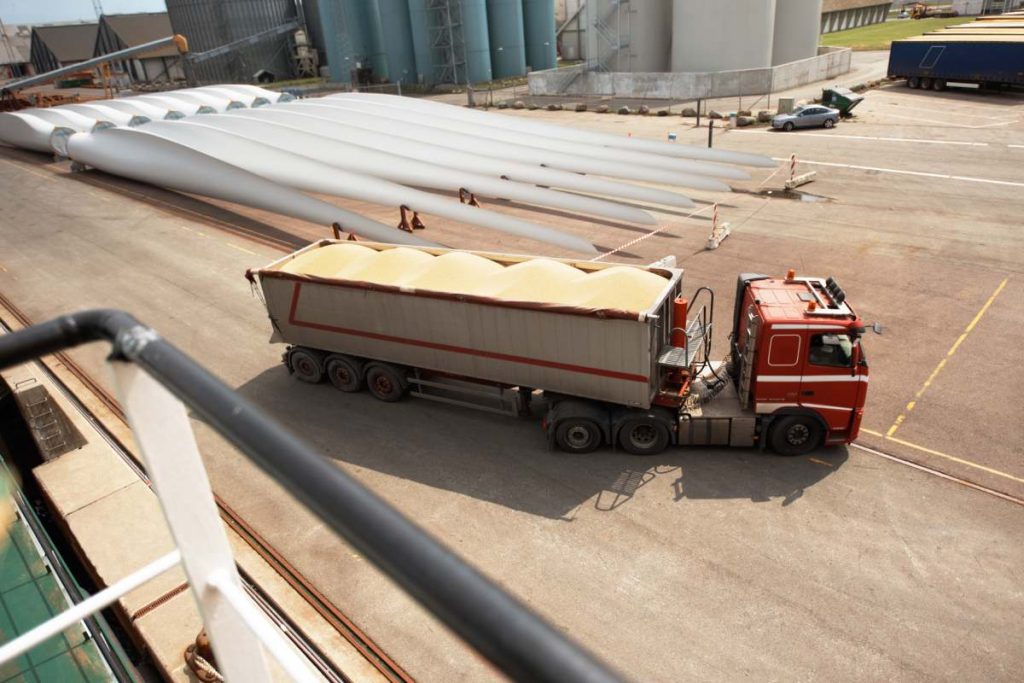in Australia
Loading


Transporting grain efficiently and cost-effectively is a crucial part of the agricultural industry in Australia. Whether you’re a farmer, a grain broker, or involved in the supply chain, finding the right transport service is essential. One great way to make the process easier and more affordable is by obtaining free grain transport quotes.
Free grain transport quotes are estimates provided by transport companies, indicating the cost of moving grain from one location to another. These quotes are based on various factors, including the type and quantity of grain, the distance to be covered, and any special handling requirements. The great thing about these quotes is that they are free, allowing you to compare different services without any commitment.
Finding companies that specialize in grain transport in Australia such as Fillme. Fillme offers online platforms where you can request quotes easily. Alternatively, contacting companies directly by phone or email also works well. Look for experienced providers with a track record in transporting grain and similar cargo to yours.
Transporting grain across state lines in Australia is a crucial aspect of the agricultural supply chain. The country’s vast distances and diverse agricultural regions require efficient and reliable transport services to ensure grain reaches its destination in good condition and on time.
Interstate grain transporters specialize in moving large quantities of grain from farms to processing facilities, storage sites, or export terminals.
Upload Your Cargo Today and Get Free Freight Quotes

Interstate grain transport in Australia comes with its challenges. The country’s vast distances and varying climates can affect transport times and costs. Additionally, biosecurity measures must be adhered to, especially when transporting grain across state borders to prevent the spread of pests and diseases.
Another consideration is the availability of transport infrastructure. In some regions, rail may be the most efficient option, while in others, road transport may be necessary due to a lack of rail facilities. Understanding the infrastructure available can help in planning the most efficient transport routes.
Remember, transparency and clarity in communication with transport providers will help you make informed decisions and ultimately get your cargo safely to its destination.
Interstate grain transporters play a vital role in connecting grain producers with markets across Australia. They provide specialized services tailored to the unique needs of the grain industry, including:
When selecting an interstate grain transporter, there are several important factors to consider:
Experience and Reputation: Look for transport companies with a proven track record in the grain industry. Companies with extensive experience are more likely to understand the specific challenges and requirements of grain transport.
Network and Reach: Consider the transporter’s network and the regions they cover. A company with a wide-reaching network can offer more flexibility and options for transporting grain to different parts of Australia.
Service Offerings: Different transporters may offer various services, such as on-farm pick-up, storage solutions, or logistics management. Choose a company that offers services that align with your specific needs.
Cost and Efficiency: Cost is an important consideration, but it shouldn’t be the only factor. Evaluate the efficiency and reliability of the transporter’s services. Sometimes, paying a little more for a reliable service can save money in the long run by reducing the risk of delays or damage to the grain.
Customer Support: Good customer support is essential for dealing with any issues that may arise during transport. Choose a company that offers responsive and helpful customer service.
Using a professional crops and grains transport service offers numerous benefits:

Local grain transporters play a vital role in Australia’s agricultural sector, ensuring that grain moves efficiently from farms to nearby storage facilities, processing plants, and local markets. Unlike interstate transport, which involves longer distances and more complex logistics, local grain transport focuses on shorter routes within a specific region or state.
This service is crucial for maintaining the quality of the grain and ensuring it reaches its destination promptly. Here’s a closer look at the role and importance of local grain transporters in Australia.
Farm-to-Storage Transport: One of the primary tasks of local grain transporters is moving freshly harvested grain from farms to local storage facilities. This step is critical during the harvest season when timing is everything. Quick and efficient transport helps prevent grain spoilage and allows farmers to clear their fields for the next planting cycle.
Transport to Processing Facilities: After storage, grain often needs to be transported to local processing plants where it is cleaned, milled, or processed into various products. Local transporters ensure that the grain reaches these facilities in a timely manner, supporting the production of food products, animal feed, and other goods.
Distribution to Local Markets: In addition to storage and processing, local grain transporters also deliver grain to local markets, including wholesalers, retailers, and end consumers. This is particularly important for supplying fresh and quality grain to bakeries, breweries, and other businesses that rely on locally sourced ingredients.
Flexibility and Responsiveness: Local grain transporters are often more flexible and responsive than larger interstate companies. They can quickly adjust to changing conditions, such as unexpected increases in demand or weather-related disruptions. This agility is particularly valuable in agriculture, where timing and adaptability can significantly impact the success of the harvest and subsequent sales.
When selecting a local grain transporter, there are several factors to consider to ensure smooth and efficient operations:
Proximity and Accessibility: Choose a transporter that is geographically close to your farm or business. This reduces transport time and costs and ensures faster response times.
Equipment and Capacity: Assess the transporter’s fleet and equipment. The company should have vehicles suited to the type and quantity of grain you need to transport. This might include specialized trucks with hoppers or trailers designed for grain transport.
Reputation and Reliability: Look for transporters with a good reputation in the local community. Reliable service is crucial, as delays or mishandling can lead to grain spoilage and financial losses.
Cost and Pricing Structure: While cost is an important consideration, it’s essential to balance affordability with service quality. Transparent pricing and clear communication about fees and charges can help avoid unexpected costs.
Insurance and Safety: Ensure that the transporter has adequate insurance coverage and adheres to safety standards. This protects your investment and provides peace of mind that your grain is in good hands.
After comparing quotes, you’ll see Fillme is the best that meets your needs in terms of cost, service quality, and reliability. Contact us to confirm the details, clarify any questions, and schedule the transportation.
